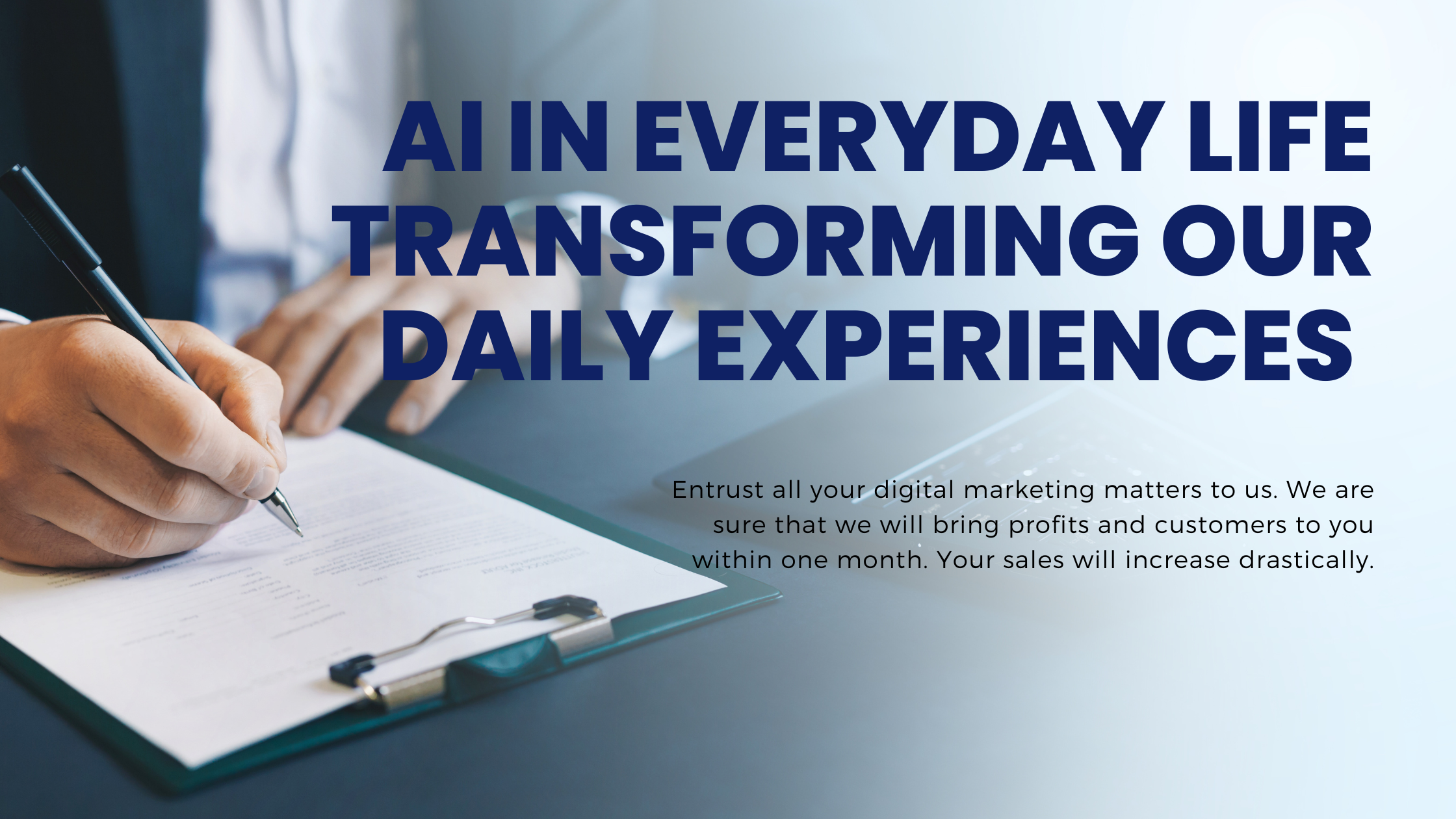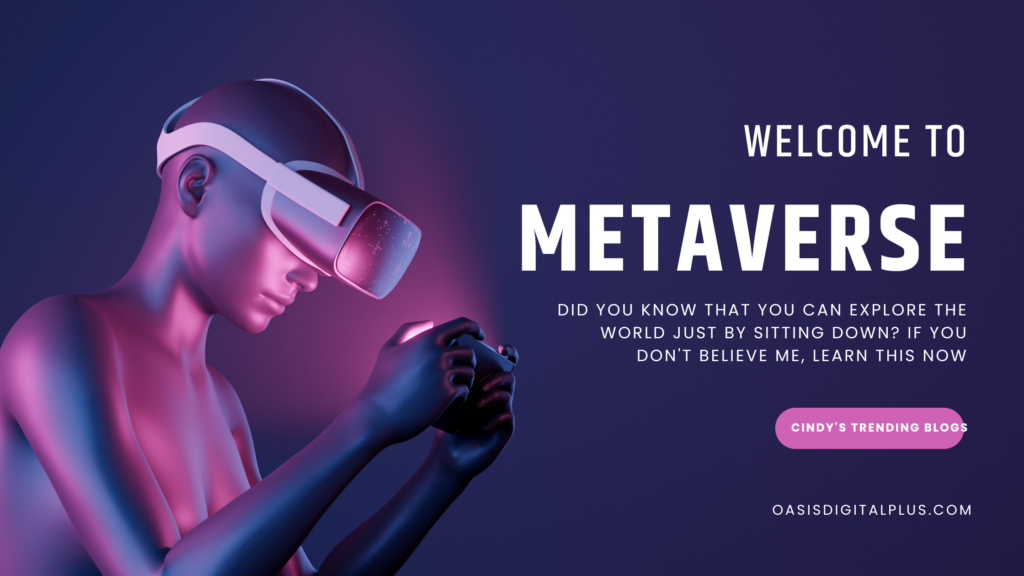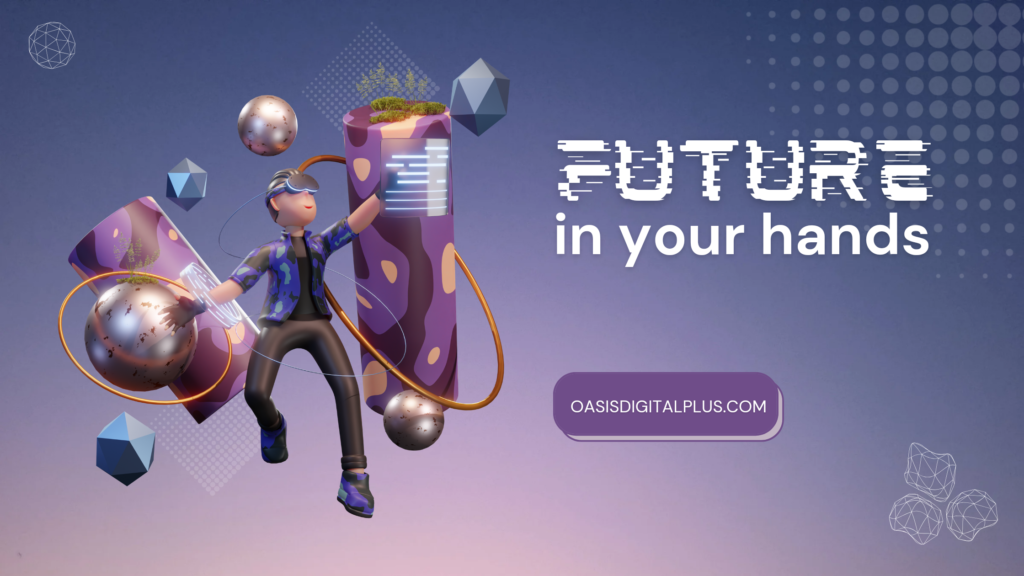Address
304 North Cardinal
St. Dorchester Center, MA 02124
Work Hours
Monday to Friday: 7AM - 7PM
Weekend: 10AM - 5PM
Address
304 North Cardinal
St. Dorchester Center, MA 02124
Work Hours
Monday to Friday: 7AM - 7PM
Weekend: 10AM - 5PM


AI in Everyday Life: Transforming Our Daily ExperiencesArtificial Intelligence (AI) is not just a tool for experts in high-tech industries; it’s an integral part of our everyday lives. From the devices we use to the services we rely on, AI enhances convenience, efficiency, and personalization in ways that were once unimaginable. This article explores the pervasive influence of AI in our daily routines, highlighting its applications, benefits, challenges, and future prospects.
Smart Homes: Intelligent Living Spaces
AI has turned our homes into smart, connected environments that simplify daily tasks and improve quality of life.
1. Virtual Assistants-Virtual assistants like Amazon’s Alexa, Google Assistant, and Apple’s Siri have become household staples. These AI-powered assistants respond to voice commands, enabling hands-free control over various tasks such as setting reminders, playing music, and controlling smart home devices.
2. Home Automation- AI-powered home automation systems allow us to control lighting, heating, and security systems through our smartphones or voice commands. Smart thermostats like Nest learn our schedules and preferences to optimize energy usage, while smart security cameras provide real-time monitoring and alerts.
3. Personalized Entertainment – Streaming services like Netflix and Spotify use AI algorithms to analyze our viewing and listening habits. They recommend content tailored to our tastes, ensuring that we always have something interesting to watch or listen to.

Personalized Healthcare: AI for Better Health
AI is revolutionizing healthcare by making it more accessible, personalized, and proactive.
1. Wearable Health Devices – Wearable devices such as Fitbit, Apple Watch, and other health trackers monitor physical activity, heart rate, sleep patterns, and more. AI analyzes this data to provide insights into our health and fitness, encouraging healthier lifestyles.
2. Telemedicine – AI-powered telemedicine platforms enable remote consultations with healthcare professionals. These platforms use AI to triage patients, analyze symptoms, and suggest treatments, making healthcare more convenient and accessible, especially in remote areas.
3. Predictive Health Analytics – AI systems analyze health data to predict potential health issues before they become serious. For example, AI can detect early signs of diabetes, heart disease, or mental health conditions, allowing for timely intervention and better health outcomes.
Efficient Transportation: AI on the Move
AI is transforming transportation by making it more efficient, safe, and convenient.
1. Navigation and Traffic Management – AI-powered navigation apps like Google Maps and Waze provide real-time traffic updates, suggest alternative routes, and estimate travel times. These apps use machine learning to analyze traffic patterns and predict congestion, helping us reach our destinations faster.
2. Ride-Sharing Services – Companies like Uber and Lyft use AI algorithms to match riders with drivers, optimize routes, and predict demand. This improves the efficiency of ride-sharing services, reducing wait times and costs for users.
3. Autonomous Vehicles – Self-driving cars, powered by AI, are on the horizon. Companies like Tesla, Waymo, and others are developing autonomous vehicles that can navigate roads, avoid obstacles, and make driving safer and more convenient.
Smart Shopping: AI in Retail
AI is enhancing the shopping experience, making it more personalized and efficient.
1. Personalized Recommendations – E-commerce platforms like Amazon use AI to analyze browsing and purchase history. They provide personalized product recommendations, making shopping more enjoyable and helping customers find what they need quickly.
2. Virtual Try-Ons – AI-powered virtual try-on technologies allow customers to see how clothes, accessories, or makeup will look on them without physically trying them on. This enhances the online shopping experience and reduces returns.
3. Automated Customer Service – Chatbots and virtual assistants handle customer inquiries, process orders, and provide support 24/7. This improves customer service efficiency and ensures that customers receive prompt assistance.

Smart Communication: AI Enhancing Interaction
AI is improving the way we communicate, making interactions more seamless and meaningful.
1. Language Translation – AI-powered translation apps like Google Translate enable real-time communication between people who speak different languages. These tools break down language barriers, facilitating global communication and collaboration.
2. Email Management – AI assists in managing our emails by filtering spam, categorizing messages, and even suggesting responses. Tools like Gmail’s Smart Reply and Smart Compose use AI to enhance email productivity.
3. Social Media – AI algorithms curate content on social media platforms, ensuring that we see posts, news, and advertisements relevant to our interests. This personalized approach keeps us engaged and informed.
Challenges and Considerations
While AI offers numerous benefits, it also presents challenges that need to be addressed.
1. Privacy Concerns – The widespread use of AI involves the collection and analysis of vast amounts of personal data. Ensuring data privacy and security is crucial to prevent misuse and protect user information.
2. Bias and Fairness – AI systems can perpetuate biases present in their training data, leading to unfair outcomes. Developing fair and unbiased AI models is essential to ensure equitable benefits for all users.
3. Dependency on Technology – As AI becomes more integrated into our daily lives, there is a risk of over-dependence on technology. It’s important to strike a balance between leveraging AI’s benefits and maintaining human skills and autonomy.
4. Ethical and Regulatory Issues– The rapid advancement of AI raises ethical and regulatory questions. Establishing clear guidelines and regulations is necessary to address issues such as accountability, transparency, and the ethical use of AI.

Future Prospects: The Evolution of Everyday AI
The future of AI in everyday life is filled with exciting possibilities.
1. AI-Powered Personalization – AI will continue to enhance personalization in various aspects of our lives, from tailored health and wellness plans to customized learning experiences. This will make services more relevant and effective for individual needs.
2. Seamless Integration – AI will become increasingly integrated into the Internet of Things (IoT), creating interconnected ecosystems that enhance convenience and efficiency. Smart homes, cities, and transportation systems will work together to provide a cohesive user experience.
3. Advanced Natural Language Processing (NLP) – Advancements in NLP will make human-machine interactions more natural and intuitive. AI-powered virtual assistants will understand context, emotions, and nuances in communication, providing more meaningful interactions.
4. AI for Good – AI will play a crucial role in addressing global challenges such as climate change, healthcare, and education. AI-driven solutions will contribute to sustainable development and improve quality of life for people around the world.
AI is transforming everyday life in profound ways, enhancing convenience, efficiency, and personalization across various domains. From smart homes and healthcare to transportation and communication, AI is making our daily experiences richer and more enjoyable. However, as we embrace the benefits of AI, it is essential to address the challenges related to privacy, bias, and ethics.The future of AI in everyday life holds immense potential. As AI technology continues to evolve, it will further integrate into our routines, offering even greater innovations and improvements. By fostering responsible AI development and usage, we can ensure that AI enhances our lives while maintaining our values and principles. The journey into the world of AI-driven everyday life has just begun, and the possibilities are truly limitless.